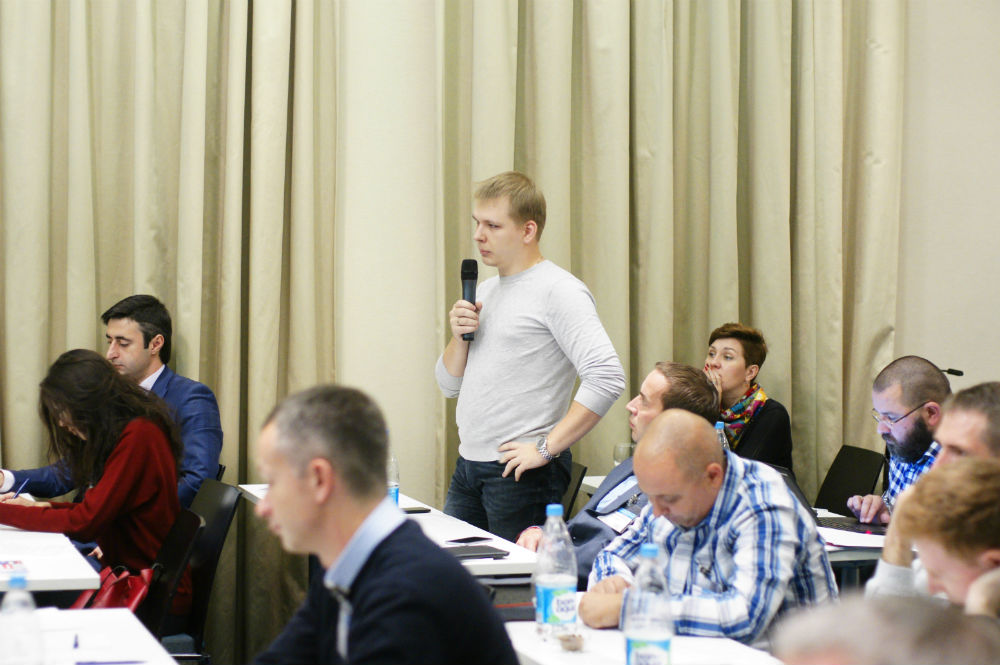Some interesting facts and insights from the conference "Electronic money and payments"
During the discussion, it turned out that almost all areas of online retail have sunk due to the crisis. Russians began to travel less abroad, but they began to spend more money on inexpensive entertainment, be it online games or going to the movies.
The market of electronic payment systems in Russia largely depends on two main aspects:
- the willingness of the population to keep money in electronic form, to pay for services and goods by card or other non-cash means;
- legislative framework regulating the industry of electronic payment systems and services.
Under current conditions, about 87% of Russians still prefer to withdraw money from a card and operate in cash, including paying for various services through terminals, losing on commissions. This fact is caused not only by a low degree of trust in banks during unstable times, but also by an underdeveloped banking infrastructure in the regions, as well as a habit that has taken root historically.
')
As for the current legislation , so far it does not contribute to the emergence in Russia of innovative payment services that could have prospects for entering the world market. The appearance of fintech startups based on the Blockchain technology is also unlikely, due to the ambiguous attitude of the regulator towards it. Although this technology is already carefully studied by many industry players. In the future, the launch of Android Pay in Russia, which has not yet been announced by Google, could have a huge impact on the industry, but this may well happen in the short term.
Under the conditions of current realities, the industry is developing towards the introduction of non-cash payments in various areas of online business. Dmitry Danilenko, head of international money transfer and e-commerce at Qiwi, shared their experience in monetizing gaming audiences, as well as nanocredit in games:
http://www.slideshare.net/AleksandrsBaranovs/qiwi-qiwi
Fascinated by the game users, not wanting to be distracted by linking their cards or other time-consuming ways to replenish the game balance, are happy to make loans for small amounts. Most players do not care about a high percentage of microloans, since we are talking about amounts not exceeding 300 rubles, the value of which is in their immediate availability during the game.
The possibility of developing a payment services service in Russia for subscribers of a mobile operator, similar to M-Pasa, which was rapidly spreading in African countries, was discussed. The topic is interesting for Russian mobile operators, and its development is possible in the future, but now there are no suitable conditions for this.
What conditions are we talking about, using the example of the aforementioned M-Pes?
- The company entered the market in the conditions of support from regulators and relevant legislative bases.
- The international giant in the cellular market, Vodafone, partially owns Safaricom (launched M-Pesa in Kenya) and Vodacom (M-Pesa-Tanzania), and also has a number of agreements with cellular leaders in Afghanistan, Egypt, India and South Africa, which makes it easy to extend the M-Pesa model to the markets of these countries.
- Almost immediately after the launch, the marketing initiatives of mobile operators were redirected from brand promotion to educational programs for the public on using the capabilities of the new payment model.
More information about the experience of launching the M-Pesa service can be found in this study .
The same fast-growing African market of non-cash payments is also in the areas of interest of the world's largest electronic payment system PayPal, as Olga Lonshakova, head of business development at PapPal in Russia, said.
The CONTACT money transfer system at this time is developing its business in the Asian direction, as described by Elena Gafarova, Vice President of CONTACT:
http://www.slideshare.net/AleksandrsBaranovs/contact-53535337
The largest direction in terms of turnover of individuals' remittances among non-CIS countries (data from the Bank of Russia) was China. For 2014, $ 825 million was sent from Russia to the PRC via money transfer systems, and $ 109 million in the opposite direction. For comparison: the turnover of transfers between the USA and the Russian Federation was $ 179 million. It is noteworthy that 97% of transfers sent to China via the CONTACT system, accounted for only 8 cities of the Middle Kingdom. 80% of transfers are addressed to the accounts of individuals.

While other representatives of the industry focus on some specific areas of business development, Western Union, which operates in 200 countries, invests 3.5% of its revenues in compliance, complying with the constantly tightening legislation of the countries in which the company operates. And as Alexandru Badulescu, regional vice president of Western Union in Eastern Europe and the CIS, noted, the company is ready to share its expertise in this area with its partners.
Source: https://habr.com/ru/post/295492/
All Articles